Cats have long been known for their exceptional olfactory abilities, often surpassing those of humans. While we may rely heavily on our sense of sight, a cat's sense of smell plays a crucial role in their daily lives, helping them navigate their environment, identify prey, and even recognize familiar scents, including their owners. In this blog post, we will delve into the fascinating world of a cat's sense of smell and explore just how far they can detect and identify their beloved owners by scent alone. Prepare to be amazed by the powerful noses of these curious feline creatures.
Overview of a cat's olfactory system (mention the number of scent receptors and compare to humans)

Cats have long been known to possess a remarkable sense of smell, which plays a crucial role in their day-to-day lives. Their olfactory system is highly sophisticated, exceeding that of humans in several aspects. While humans have approximately 5 million scent receptors in their noses, cats boast an astounding 200 million receptors. This staggering difference allows cats to perceive scents with an incredible level of precision and detect even the most subtle odors in their environment.
The size and structure of a cat's olfactory system further contribute to their extraordinary sense of smell. Unlike humans, who have a relatively small area dedicated to scent detection, cats have a larger olfactory epithelium – the tissue responsible for housing scent receptors. This increased surface area allows cats to pick up a wide range of smells, including pheromones secreted by other animals or even specific scents emitted by their owners.
Additionally, the Jacobson's organ, also known as the vomeronasal organ, enhances a cat's sense of smell. Located in the roof of their mouths, this auxiliary scent detection system is specialized in detecting pheromones, which are chemical signals emitted by animals to communicate with others. When cats encounter particular scents, they often open their mouths slightly and make a distinctive grimace, allowing the scent molecules to reach the Jacobson's organ and provide them with additional olfactory information.
With their exceptional olfactory capabilities, it is no surprise that cats have an uncanny ability to recognize their owners by scent. While the exact distance at which a cat can smell their owner can vary based on factors such as wind and air quality, it is safe to say that a cat can detect their owner's scent from quite a distance away. Whether it's the unique scent of their owner's clothing, personal belongings, or even the familiar fragrance of their skin, cats can pick up on these olfactory cues and identify their owners with incredible accuracy.
In conclusion, a cat's olfactory system is truly remarkable, equipped with an astonishing number of scent receptors and specialized organs. Their keen sense of smell allows them to navigate their surroundings, communicate through pheromones, and even recognize their owners based on scent alone. Understanding the capabilities of a cat's olfactory system provides us with a deeper appreciation for the unique ways in which they perceive the world around them.
The remarkable sensitivity of a cat's nose (highlight the ability to detect faint scents and investigate their surroundings through odor)
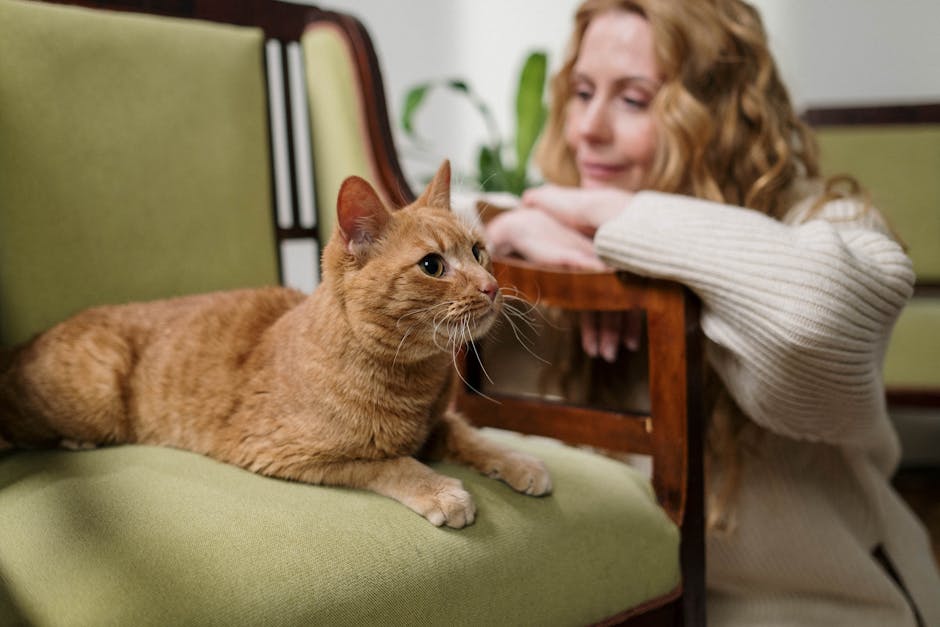
With their keen sense of smell, cats have long been known for their remarkable olfactory abilities. It is often said that a cat's nose is its most powerful tool, and their sense of smell is truly impressive. Cats' noses contain millions of scent receptors, far more than humans' noses and even more than dogs'. This heightened sensitivity allows them to pick up on faint scents that we might not even notice.
One of the fascinating aspects of a cat's sense of smell is their ability to detect the scent of their owners. Many cat owners can attest to the times when their feline friends have eagerly greeted them at the door, seemingly aware of their presence even before they enter the house. This can be attributed to a cat's ability to remember and recognize individual scents, including that of their beloved owners.
Cats use their sense of smell not only to identify specific scents but also to investigate their surroundings. They rely heavily on their sense of smell to understand the world around them, as it provides vital information about their environment and the presence of other animals or potential threats. By analyzing the various scents in their surroundings, cats can gather information about the presence of food, the territory of other animals, and even the mood or health of their fellow feline companions.
Furthermore, a cat's sense of smell plays a crucial role in their hunting instincts. Their ability to detect the scent of prey, even in inaccessible areas, allows them to follow trails and track down their targets with precision. This talent has been honed through centuries of evolution, making cats exceptional hunters and survivors.
It's important to note that a cat's sense of smell is not only about detecting pleasant scents or familiar owners. They are also sensitive to odors that may be unpleasant or alarming. Certain smells can trigger a cat's aversion or anxiety, causing them to exhibit behaviors like hissing or retreating from the source of the scent. Understanding and respecting a cat's sensitivity to certain smells is crucial in ensuring their well-being and comfort.
In conclusion, a cat's sense of smell is a fascinating aspect of their overall sensory abilities. Their noses are incredibly sensitive, allowing them to detect faint scents, recognize their owners, and gather essential information about their environment. This remarkable olfactory capability contributes to their hunting skills, survival instincts, and overall understanding of the world around them. It's truly amazing to see how a cat's nose plays such a significant role in their daily lives.
The bond between cats and their owners (discuss the special connection cats form with their owners through scent)
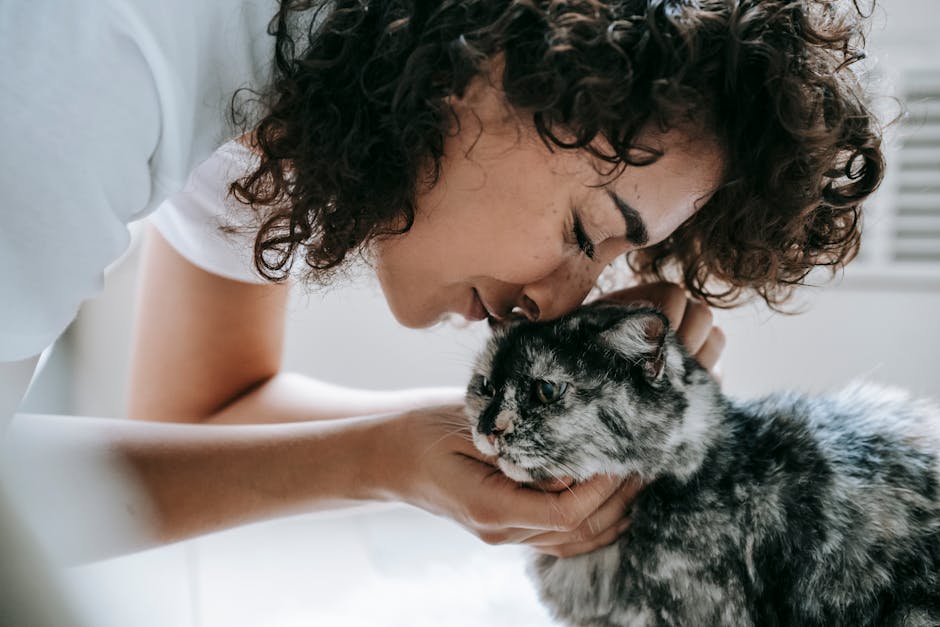
Cats are famously known for their independence and aloof demeanor, yet there is a unique and powerful bond that they form with their owners. This connection goes beyond mere companionship and is often solidified through the scent.
Cats have an extraordinary sense of smell, with a staggering 200 million scent receptors in their noses compared to humans' mere 5 million. They rely heavily on their olfactory abilities to navigate and understand the world around them. When it comes to their owners, cats use their exceptional sense of smell to recognize and identify familiar scents.
As owners, we leave our scent on various objects in our living spaces, such as clothing, furniture, and bedding. Cats are then able to associate these scents with our presence and form a strong bond through them. They can often be seen rubbing their faces or bodies against these scented objects as a way to mark them with their own scent, thus creating a shared smell that further reinforces the bond between cat and owner.
Additionally, cats possess scent glands located in various parts of their bodies, including their paws, cheeks, and tails. These glands produce pheromones, chemical substances that carry specific messages and emotions. Cats use these pheromones to communicate with each other and, importantly, with their owners. By depositing pheromones on objects, cats leave signals that mark their territory and provide a sense of familiarity and security.
Furthermore, a cat's sense of smell not only allows them to recognize their owner's scent but also enables them to distinguish between different human scents. Cats can discern the scent of one family member from another, identifying and remembering individual smells in a way that allows them to form a personal connection with each member of the household.
It is fascinating to observe how cats react when their owners return home after a prolonged absence. They may show signs of excitement, rubbing against their owner's legs or curling up in their laps, as they soak in the familiar scent that instantly puts them at ease. This reaction highlights the powerful bond and emotional connection that cats develop with their owners through scent.
In conclusion, while cats may not express their affection in the same way as dogs or other pets, their unique bond with their owners is undeniable. Through their exceptional sense of smell, cats form a deep connection with the scents associated with their owners, using them to navigate their environment and create a strong emotional attachment. So, the next time your cat rubs against your leg or curls up next to you, remember that it is their way of showing love and solidifying the bond through the power of scent.
Factors that affect a cat's ability to detect their owner's scent (outline variables such as distance, wind, and scent contamination)
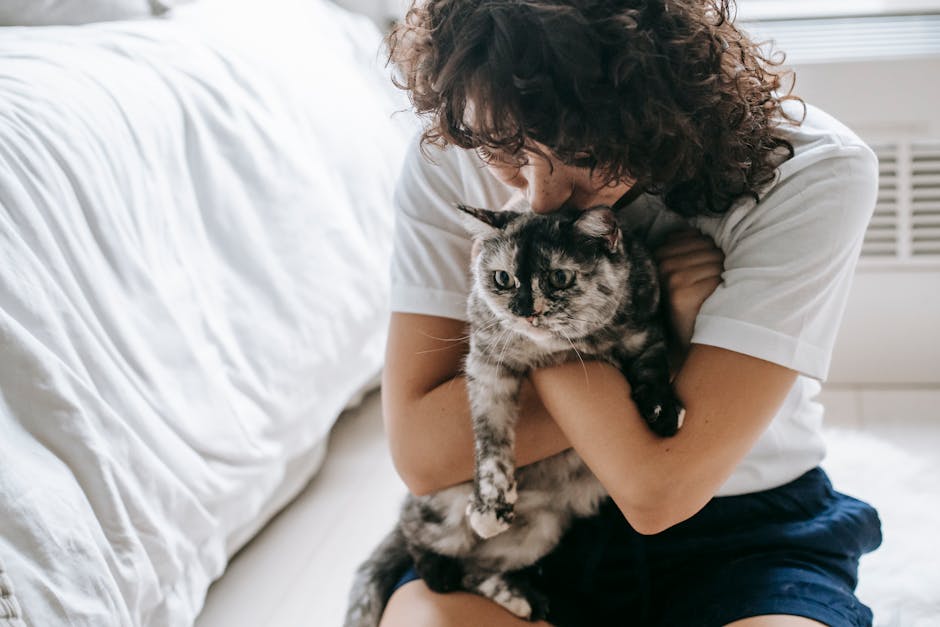
Cats have a remarkable sense of smell that allows them to detect odors that are imperceptible to humans. When it comes to smelling their owners, there are various factors that can impact a cat's ability to detect their owner's scent. These factors include distance, wind, and scent contamination.
Firstly, distance plays a significant role in how far a cat can smell their owner. Cats have a more acute sense of smell compared to humans, but their olfactory range is not as extensive as that of some other animals. Generally, a cat can detect their owner's scent within a few feet or even across a small room. However, the accuracy of scent detection decreases as the distance between the cat and their owner increases.
Secondly, the wind direction and intensity can influence a cat's ability to smell their owner. The movement of air can carry odors, and if the wind is blowing in the opposite direction of where the scent is coming from, it may hinder the cat's ability to catch the smell. On the other hand, if the wind is favorable, it can help carry the scent directly towards the cat, enhancing their ability to detect their owner.
Lastly, scent contamination can impact how well a cat can smell their owner. Cats have an incredibly sensitive nose that can decipher different scents. If there are any other odor sources in the vicinity, it might affect the cat's ability to identify their owner's scent accurately. For example, if there are strong cooking smells or other household odors, they may overpower or mix with the owner's scent, making it more challenging for the cat to differentiate and pinpoint their owner's smell.
Overall, while cats possess an impressive sense of smell, several factors can affect their ability to detect their owner's scent. Distance, wind direction, and scent contamination all play a role in determining how far a cat can smell their owner. Understanding these variables can help pet owners better comprehend the nuances of their cat's olfactory abilities and the role smell plays in their relationship.
Research studies on cats and scent recognition (share findings from studies conducted on cats recognizing their owners by scent)
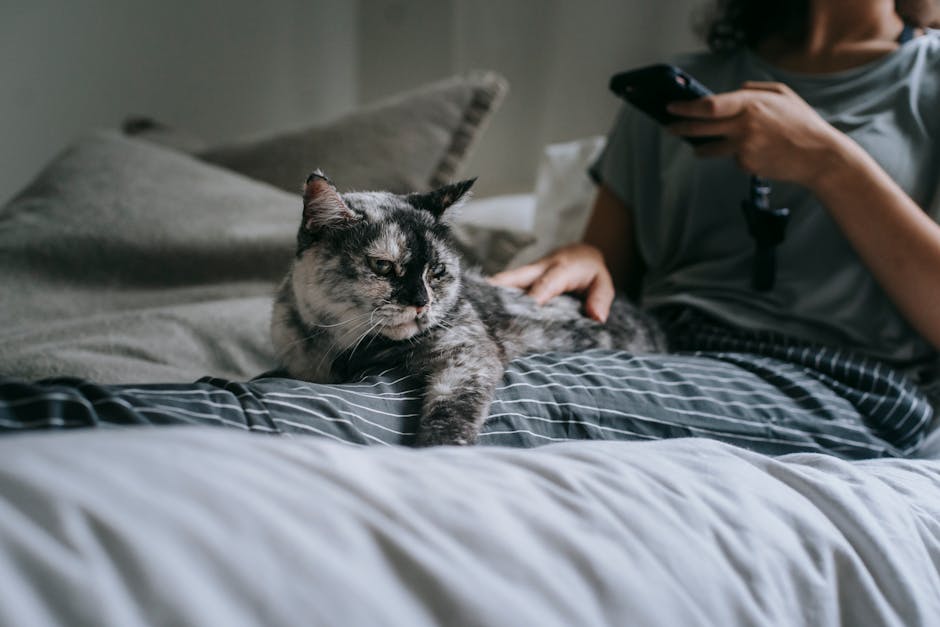
Research studies on cats and scent recognition have revealed fascinating insights into the remarkable olfactory abilities of these furry companions. Cats possess an extraordinarily powerful sense of smell, which enables them to differentiate and recognize various scents, including that of their owners.
A study conducted at the University of Lincoln examined the distinct scent profiles of 37 cats and their owners. The research found that cats could accurately identify their owners' scent among a group of strangers. The study identified specific chemical compounds present in humans that cats associate with their owners, allowing them to distinguish their scent from others.
Furthermore, another study published in the journal Animal Cognition investigated the ability of cats to recognize their owners' scent even in their absence. The researchers discovered that cats possessed a remarkable long-term memory of their owners' scent, as they could differentiate between familiar and unfamiliar odors after a prolonged separation. This suggests that cats can form a strong emotional bond with their owners through scent recognition.
Interestingly, cats' olfactory acuity may extend even further than just recognizing their owners' scent. Research conducted by scientists at the University of Tokyo revealed that cats can also detect emotional cues through scent. The study found that cats exposed to the scent of their owners experienced reduced stress levels and displayed more positive behaviors compared to when they were exposed to unfamiliar scents.
These findings highlight the importance of scent recognition in the relationship between cats and their owners. The ability of cats to identify and remember their owners' scent not only reinforces the bond between them but also contributes to their overall well-being. Understanding this aspect of feline behavior allows owners to better connect with their cats and create a nurturing environment that supports their natural instincts.
In conclusion, research studies have shed light on the impressive scent recognition abilities of cats. By identifying and distinguishing their owners' scent from others, cats showcase their extraordinary olfactory prowess. This unique bond formed through scent recognition emphasizes the significance of establishing a strong and harmonious relationship between cats and their owners.
Personal anecdotes and stories of cats recognizing their owners (share heartwarming examples from cat owners' experiences)
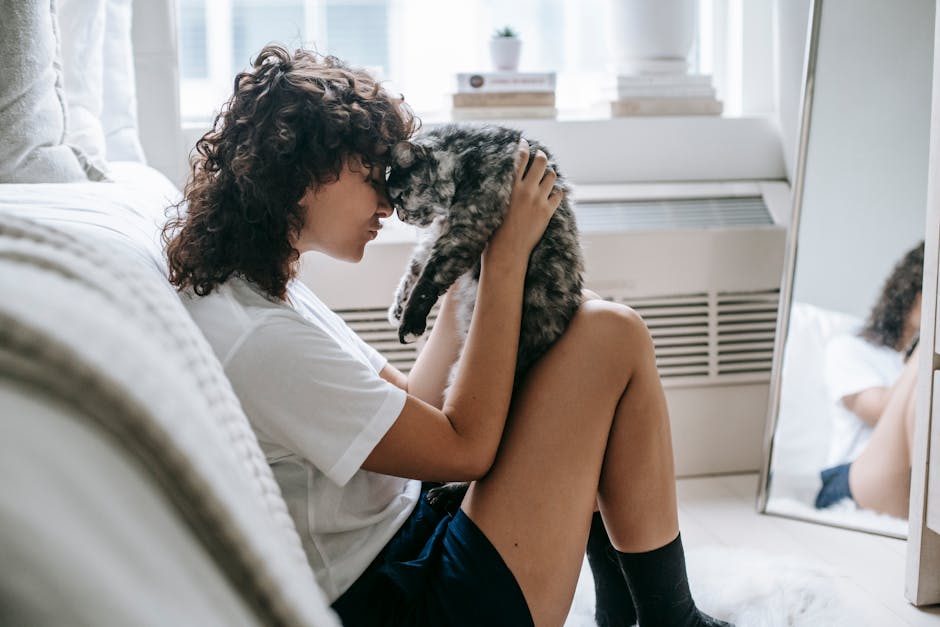
Cats are fascinating creatures. Not only are they known for their independence and mysterious nature, but they also possess an incredible sense of smell that rivals even the most sophisticated technology. As a result, it's no surprise that cats have been found to recognize and remember their owners based on their scent. In fact, many cat owners have shared heartwarming anecdotes and stories of their feline companions displaying an unmistakable recognition, even from a distance.
One such example is from Sarah, a cat owner who had to travel for work frequently. Every time she returned home, her beloved cat, Whiskers, would greet her at the door with a meow of excitement. But what amazed Sarah the most was when she received a call from her neighbor, who had been taking care of Whiskers in her absence. The neighbor mentioned that every time Sarah's car pulled into the driveway, Whiskers would immediately perk up, run to the window, and eagerly wait for her to come inside. It was as if Whiskers could smell her arrival from a mile away.
Another heartwarming story comes from Michael, who adopted a stray kitten named Luna. Being a busy entrepreneur, Michael often had to spend long hours at his office. However, whenever he returned home late at night, Luna would instantly recognize his presence. As soon as Michael opened the door, Luna would come running, rubbing against his legs and purring with delight. Strangers who came to visit also noticed how Luna would always gravitate towards Michael, following him around the room and curling up next to him. It was clear that Luna could pick up on her owner's scent, forming an unbreakable bond between them.
These personal anecdotes are not isolated incidents but rather shining examples among countless cat owners worldwide. They serve as a testament to the remarkable olfactory abilities of cats and their uncanny ability to remember and recognize their owners through scent alone. It's yet another reminder of the deep connection that exists between humans and their feline companions.
So, the next time you come home after a long day, don't be surprised if your cat comes running towards you or gives a distinctive meow of recognition. They may not be able to see you approaching or hear your footsteps, but rest assured that their highly developed sense of smell allows them to know that you're near, no matter the distance. It's just one of the many magical qualities that make cats the wonderful companions that they are.
Do you have a heartwarming story to share about your cat recognizing you based on scent? We'd love to hear it! Share your experiences in the comments below.
Tips for enhancing a cat's sense of smell (provide suggestions like using familiar scents, engaging in scent-based playtime, etc.)

Enhancing a cat's sense of smell can not only provide them with mental stimulation but also help strengthen the bond between the cat and their owner. Here are some practical tips to enhance your cat's sense of smell:
1. Utilize familiar scents: Cats are highly sensitive to scents associated with their owners. Leave behind an unwashed t-shirt or an item with your scent near their favorite resting spot. This can help create a comforting environment and remind them of your presence even when you're not there.
2. Introduce new scents gradually: Cats are known to be cautious creatures. When introducing new scents, like scented toys or treats, it's important to do so gradually. Start by placing the scented item near their food or in their toys, letting them explore and associate the new scent with pleasant experiences.
3. Engage in scent-based playtime: Encouraging your cat to use their sense of smell during playtime can be a fun and stimulating activity. Hide treats or toys in different areas of the house and let your cat seek them out using their nose. This not only engages their sense of smell but also satisfies their natural hunting instincts.
4. Provide opportunities for olfactory enrichment: Offer a variety of scented items for your cat to explore. Scatter cat-friendly herbs, like catnip or silver vine, in different areas of the house, or provide interactive puzzle toys that require your cat to use their nose to find hidden treats.
5. Avoid overwhelming scents: While it's important to stimulate your cat's sense of smell, it's equally crucial to be mindful of overwhelming scents that can cause stress or discomfort. Avoid using heavily scented cleaning products or air fresheners, as they can interfere with your cat's ability to detect other smells in their environment.
By incorporating these tips into your cat's routine, you can enrich their olfactory experience and deepen the bond between you and your feline friend. Remember, patience and gradual introduction are key to ensuring a positive and enjoyable scent-enhancing journey for your cat.
A cat's behavior towards their owner's scent (describe typical reactions such as rubbing against their owner's belongings, kneading, or purring)
A cat's behavior towards their owner's scent can be quite fascinating. Cats have a highly developed sense of smell, which allows them to pick up scents that humans would typically overlook. It's truly amazing how far a cat can smell their owner!
One typical reaction to their owner's scent is rubbing against their belongings. Have you ever noticed your cat rubbing their face against your jacket, shoes, or any item that carries your scent? This behavior, known as bunting, is a way for cats to mark their territory and establish a sense of ownership. By doing so, cats are actually depositing their own scent glands onto these objects, which helps them feel more secure and connected to their owner.
Another common behavior is kneading. Often referred to as "making biscuits," this action involves pushing their paws in and out against a soft surface, like a blanket or your lap. Kneading is often accompanied by purring, and it's a behavior that cats typically engage in when they are feeling content and relaxed. It is believed that kneading stems from a heartwarming association with their mother, as they used to knead their mother's belly to stimulate milk flow when they were kittens. So, when your cat kneads against your scent, it's a sign of trust and affection.
Purring is yet another way that cats show their approval and connection to their owners. When a cat purrs, it is not only a sound of contentment but also a way to communicate with humans. Interestingly, scientists have discovered that cats can produce a purring sound at specific frequencies, which has a calming effect on both humans and other cats. So, when your cat purrs when they are near your scent, it's their way of expressing their comfort and happiness in your presence.
In conclusion, cats have an incredible ability to pick up and react to their owner's scent. From rubbing against your belongings to kneading and purring, these behaviors are all manifestations of their love and bond with you. Understanding these behaviors can help deepen your connection and strengthen the bond between you and your feline companion.




